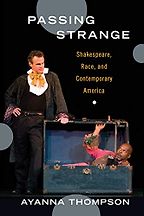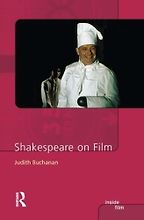Books by Ayanna Thompson
“This book is about how 19th and then 20th century America took on Shakespeare’s plays and re-engineered them to speak to the two sides of the Civil War, for instance, as well as post-Civil War questions. It looks at how black theatre companies and black actors, from Ira Aldridge (1807-1867) to Paul Robeson (1898-1976), became prominent in Shakespearean theater. She gives us not an alternative history—that would suggest that there is a true history—but shows us that Shakespeare has been, and continues to be, a part of discussions about race right through the history of America. When I went back to this book, it gave me a context for why American culture wars are still preoccupied by Shakespeare and why when your graduate school takes down a picture of Shakespeare and puts up a picture of Audre Lorde or Zora Neale Hurston (say) it becomes a crisis. She helped me to see how it is that at a point of extreme polarization in American politics, Shakespeare is always part of the discussions.” Read more...
The best books on Shakespeare’s Reception
Emma Smith, Literary Scholar
Interviews where books by Ayanna Thompson were recommended
-

1
Titus Andronicus (Arden Shakespeare)
by Jonathan Bate & William Shakespeare -

2
Reinventing Shakespeare: A Cultural History, from the Restoration to the Present
by Gary Taylor -

3
Passing Strange: Shakespeare, Race, and Contemporary America
by Ayanna Thompson -

4
Shakespeare on Film
by Judith Buchanan -

5
The Palgrave Encyclopedia of Global Shakespeare
by Alexa Alice Joubin (editor)
The best books on Shakespeare’s Reception, recommended by Emma Smith
The best books on Shakespeare’s Reception, recommended by Emma Smith
In the years after William Shakespeare died, his plays took on a life of their own. They meant different things to different people at different times as they spread around the world, turning a glover’s son from a one-horse town in central England into one of the best-known authors of all time. Emma Smith, Professor of Shakespeare Studies at the University of Oxford, recommends books to better understand ‘Shakespeare reception’—the study of Shakespeare since his death.




